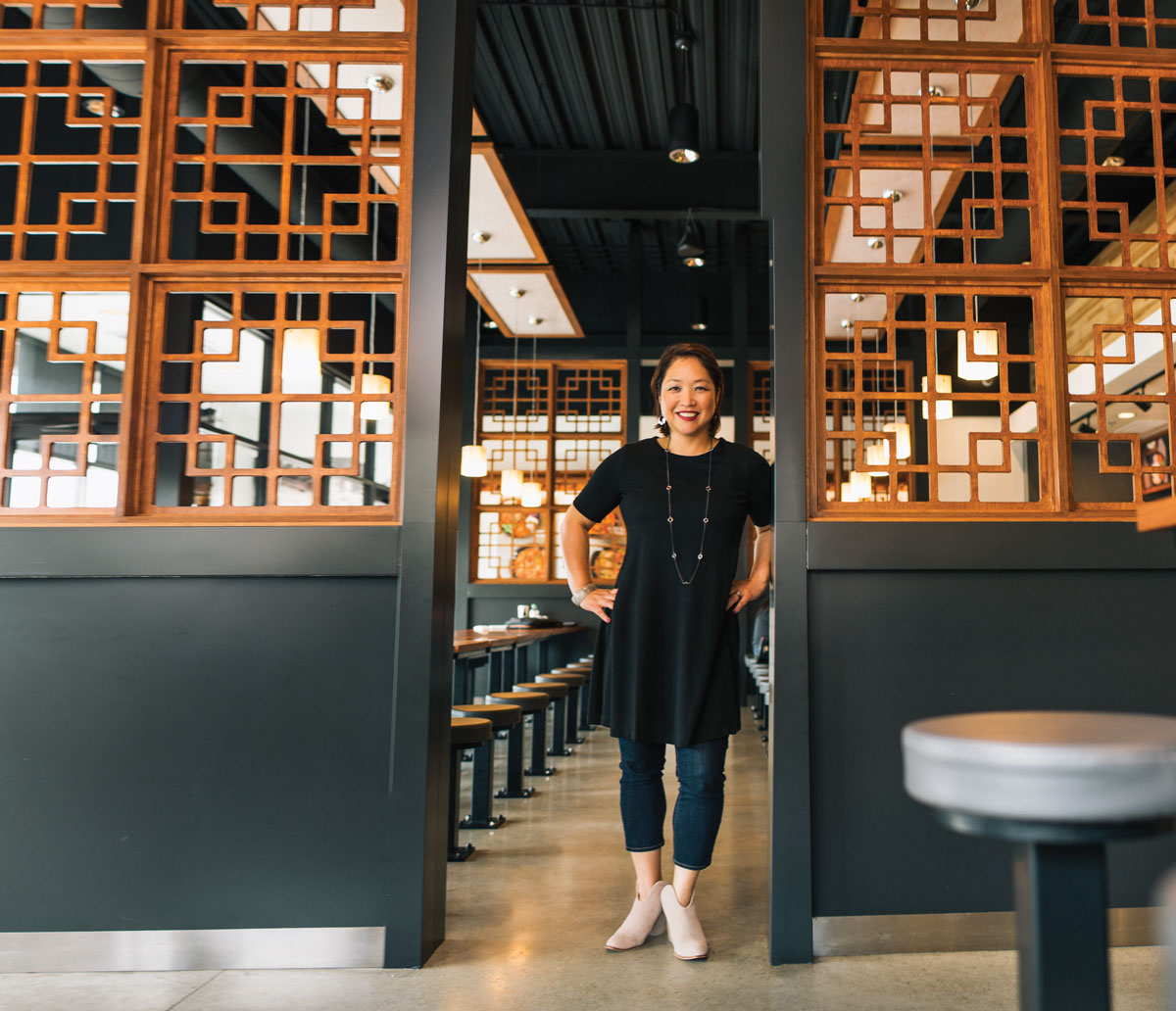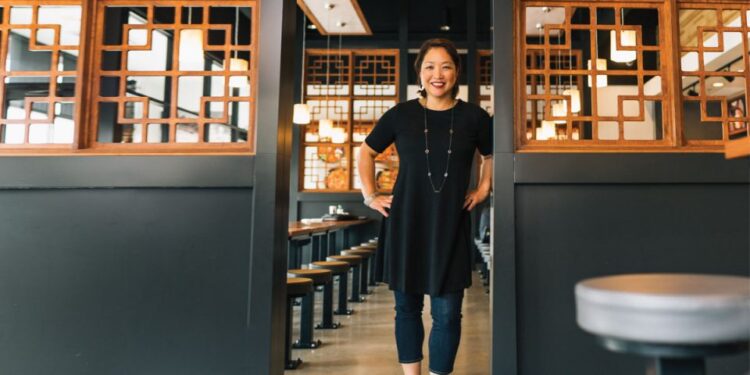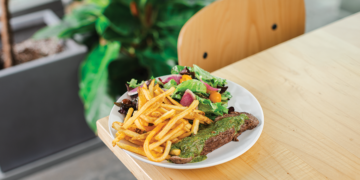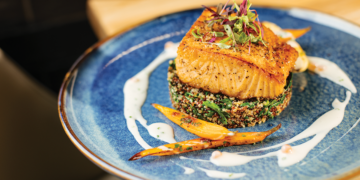If you have heard anything about Suji’s Korean Grill, it is probably that the restaurant is “Chipotle for Korean food,” an analogy trumpeted from many a Yelp review and word-of-mouth recommendation.
It’s an accurate assessment of the initial Suji’s that opened near 72nd and Pacific streets in July 2016, but the comparison becomes less apt as the eatery evolves in response to diner feedback.
“I found customers want to see more authentic Korean food and bolder flavors, so we’ve upgraded our menu to meet that demand,” says Suji Park, proprietor of Suji’s Korean Grill. Park is also the founder and “chief inspiration officer” of Suji’s Korean Cuisine, her line of prepackaged Korean meats, sauces, and bibimbap bowls sold at retailers like Whole Foods and Target.
r
Now, the woman who brought the brunch boom to Korea is working to mainstream Korean cuisine for Americans—and she’s excited to see strong demand for authenticity.
r
r
Park originally came to Nebraska to partner with University of Nebraska-Lincoln’s Innovation Campus, which lent cutting-edge preservation techniques to the development of her prepackaged foods. The international restaurateur of 12 years then chose Omaha to launch her first stateside eatery.
r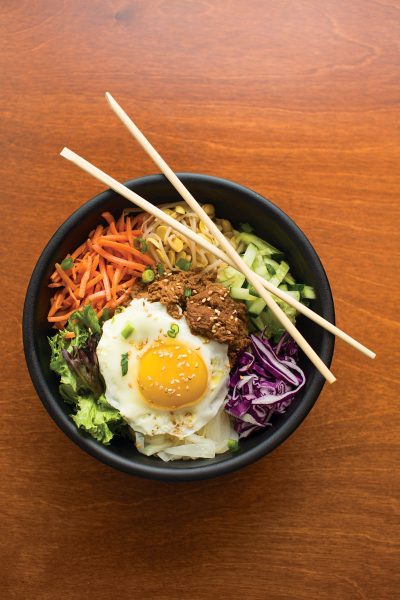 r
r
Park’s something of a culinary babel fish, translating Asian dishes for Americans, and American cuisine like brunch and New York-style deli fare for an Asian market in her Seoul and Tokyo restaurants. Now, the woman who brought the brunch boom to Korea is working to mainstream Korean cuisine for Americans—and she’s excited to see strong demand for authenticity.
Park says meeting that demand means moving Suji’s from a strict fast-casual concept to a hybrid style, where customers still order at the counter but food is freshly prepared in 10 minutes or less. The extra prep time allows for more menu variation, including the addition of dup-bap dishes—hearty meat and vegetables served “over rice”—like beef and pork bulgogi, and dak jjim, a savory, almost stewy, spicy braised chicken thigh with potato, carrot, and onion.
Park also added japchae, a well-executed traditional Korean noodle dish of thin, stir-fried sweet potato noodles tossed with carrots, onions, scallions, and a choice of marinated beef, chicken, or plump shiitakes. Available as a side or entree, it’s unique and versatile enough to appeal to vegetarians and omnivores alike.
r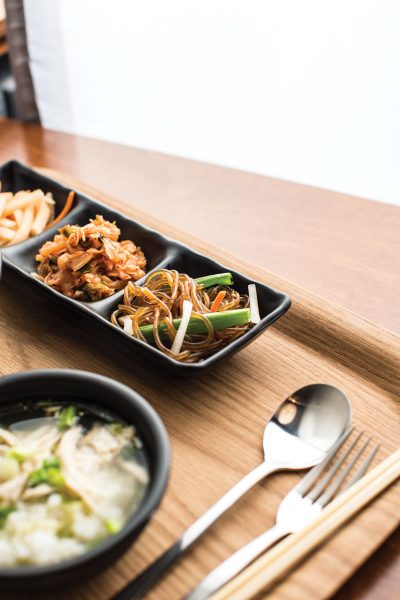 r
r
Another standout dish is the kimchi bacon rice: sautéed rice mixed with the sour bite of kimchi and the salty splendor of uncured, antibiotic-free bacon with an important texture assist from crisp cucumber, spring greens, and scallions. A perfectly cooked soft-fried egg and sesame seeds top the dish, which in total presents like the food equivalent of an expertly struck multipart harmony, the many flavors and texture elements uniting for one tasty whole.
Suji’s offers several flavorful sauces and kimchi varieties that further elevate these dishes, so diners would be wise to add them according to taste—in my case liberally, as I found such additions often lent an important layer of flavor.
Many elements will not change, including original menu items like bibimbap bowls and Korean street tacos, Suji’s inviting communal seating, and Park’s overarching commitment to all-natural ingredients. In her restaurants and prepackaged foods, Park insists on no MSG, binders, artificial colorings, flavors, or preservatives, and a gluten-conscious approach.
“We’ll never change our all-natural mission or authenticity,” says Park. “We want people to fully experience Korean meals, so we’re also introducing banchan, small dishes, like tapas, with a main dish.”
r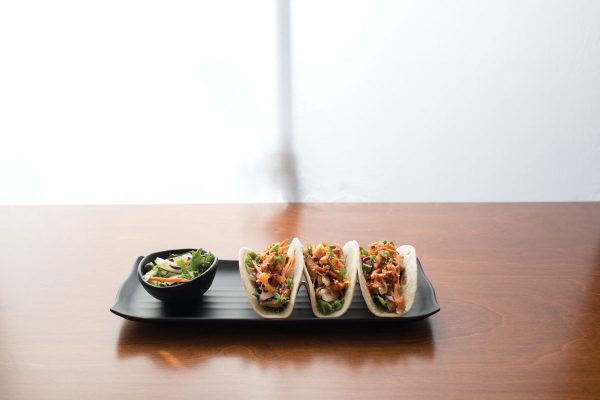 r
r
Park’s mother, Younja Kim, is visiting from Korea for several months to help develop a variety of rotating homemade banchan and kimchi. Suji’s will also host educational sessions, inviting Omahans to learn how to make varieties of kimchi.
“I’m excited to show people what Korean food is about,” she says. “I’m in the food industry because I love people, and food brings people together.”
Visit sujiskoreangrill.com for more information.
